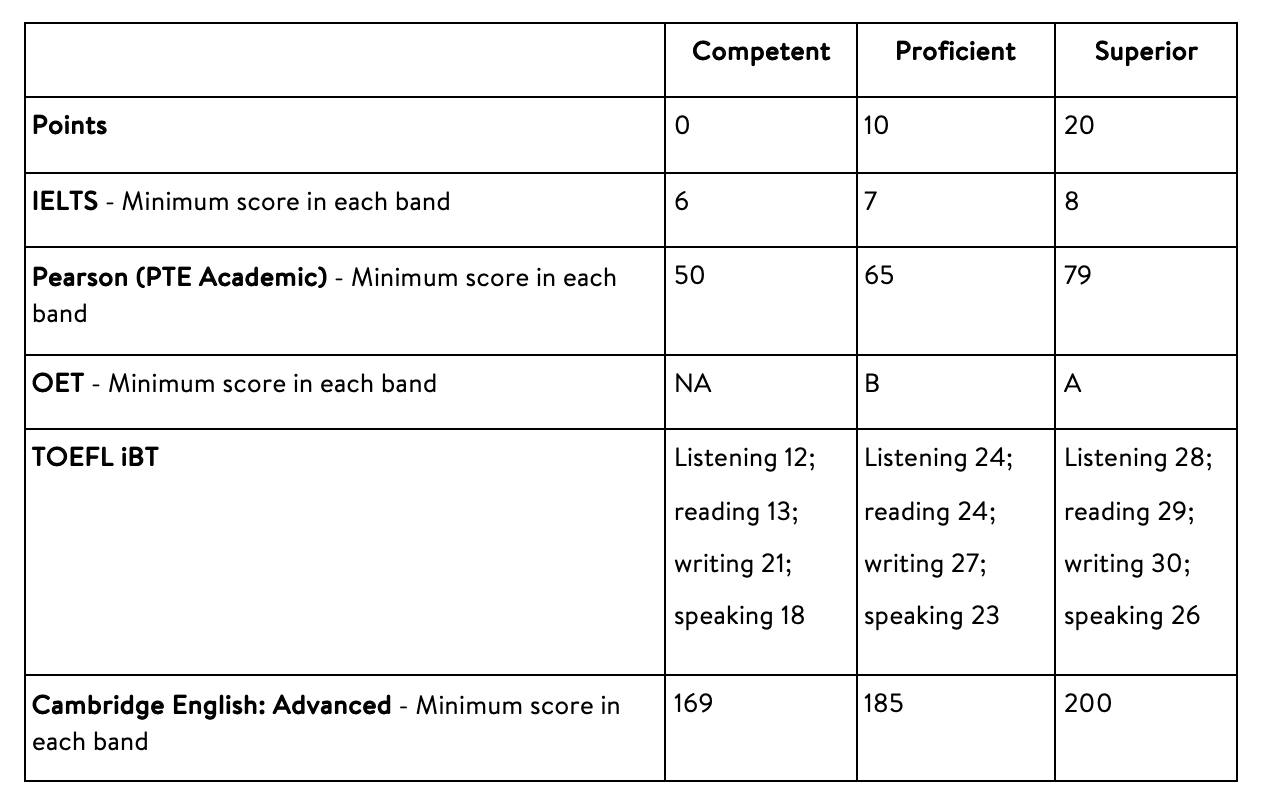This article has been written in collaboration with Nicole Kirkwood, Director of Australian Visa and Immigration Experts (AVIE) and Registered Migration Agent (MARN: 0962323).
If you’re considering a permanent migration to Australia, there are a number of pathways that you can take. General Skilled Migration (GSM) is part of Australia’s skilled migration program. The skilled migration program allows people with in-demand skills to migrate to Australia without an employer sponsor.
Here’s everything you need to know about General Skilled Migration and State Nomination.
Who is eligible for General Skilled Migration?
To be eligible for GSM you need to be in an occupation that is listed on one of the three skilled occupation lists. Together, these lists present over 700 eligible occupations to choose from.
The three lists are:
- MLTSSL Medium and Long-term Strategic Skills List
- STSOL Short-term Skilled Occupation List
- ROL Regional Occupation List
The General Skilled Migration program consists of four visa subclasses. You can choose to pursue the stream that best suits your situation.
- Subclass 189 Skilled Independent (points test) (New Zealand stream)
- Subclass 190 Skilled Nominated
- Subclass 491 Skilled Work Regional (Provisional) visa
- Subclass 191 Permanent Residence (skilled regional) visa
To be eligible for one of these visas you will need to have:
- Qualifications and/or work experience
- A skills assessment
- A suitable level of English language skills
- Meet the points test requirements
- Lodge an expression of interest
- Be approved for state/territory or regional nomination if required
- Be invited to apply for a visa
Be aware that the 189 New Zealand stream visa has different requirements to the other visas that are not discussed in this article.
Qualifications and/or work experience
To meet the qualification and work experience requirements of the skills assessor or visa, you can use both your overseas and Australian qualifications and work experience. Many people wrongly assume that their overseas qualifications and work experience are not valuable to their application, but it may be key to your eligibility for GSM.
Make sure that you have your overseas work experience assessed for your migration pathway as soon as or before you arrive. While your qualifications will remain valid, your work experience may become outdated and you might need to get a skills assessment before you complete your studies.
Skills Assessment
Your skills assessment will be conducted by a skill assessing authority. There are currently 42 skills assessors available but your own skills assessor will depend on your occupation. Every skills assessor has their own requirements and the eligibility criteria can vary.
Most skills assessors will require one of the following combinations.
- Suitable qualifications, work experience and an English test
- Suitable qualifications and an English test
- Suitable qualifications and work experience
- Suitable work experience only
English requirements can also vary. Some skills assessors only accept IELTS and others will accept all English tests. While the skills assessor may require a particular English test, you may use another (if you get a better result) for your visa application.
A suitable level of English
At a minimum, your English language skills need to be competent to meet the requirements for GSM. However, in most cases, your English language skills need to be proficient or superior. This is because you may be required to have a higher level of English by your skills assessor, a nominating state or you will require it for points.
There are a number of simple ways you can improve your English speaking and reading skills before your test.
Applicants will need to complete the IELTS, OET, Pearson, Cambridge or TOEFL test of English language ability to score points for GSM.

If you hold a passport from the UK, Ireland, USA, Canada or NZ, you are exempt from English language testing. However, you will still need to do an English test if you wish to claim points for English language ability.
The points test
The points test requires a minimum of 65 points to be selected for GSM. However, some visas are competitive, and you will often need a much higher score.
You can be awarded points for your level of English, your education, work experience, your relationship status, your partner’s level of English and your fluency in another language. You may also be awarded points if you have Australian family members, or if you chose to live or study in a nominating state or region.
You can calculate an estimated points score here.
If you are not able to achieve the high score required for the subclass 189 visa, you can consider the subclass 190 and 491 visas. These visas often require a lower score and offer extra points for applying for these subclasses.
Expression of interest (EOI)
Once you have met the requirements for your skills assessment, English test and points test, you can lodge your expression of interest here. It’s crucial you have met all requirements before you lodge your EOI or your visa may be refused.
Remember that lodging an expression of interest does not necessarily mean that you will be invited to apply. You should also note that while a higher score would traditionally be sufficient for a subclass 189 visa, during the pandemic, the Department of Home Affairs is prioritising occupations that help manage the health of people in Australia or the country’s economic recovery.
If you have lodged an EOI and have not been invited, you may need to consider state or regional options.
State or territory and regional nomination
If you have a STSOL or ROL occupation you must be nominated by a state or a region for either a 190 or a 491 visa. If you have a MLTSSL occupation then you may also choose this option if you want to.
The application process and eligible occupations vary between each state and territory. It’s important to research the options that your state offers and whether studying in a certain state can change your permanent migration options. Remember that requirements are subject to change.
Currently, only one state has offshore options – Tasmania. However, prior to COVID-19, all states could nominate people who were outside Australia as well as onshore.
If you are approved by your state or region, you will be invited to apply for a visa.
Invited to apply for a visa
If you are invited to apply for a visa then you will have 60 days in which to apply. You will be granted a permanent residence in Australia if you apply for a subclass 189 or 190 and a provisional residence if you are granted a 491.
A subclass 491 is granted for five years. After three years, you can apply for permanent residence, via the subclass 191, if you have worked in a regional location and earned above the required income level ($53,900).
Where to go for visa support
If you’re in need of a little extra assistance when it comes to visas, don’t worry – there are places you can go for guidance.
The Department of Home Affairs website is the first place you should seek information regarding visas in Australia. Alternatively, contact a Registered Migration Agent to have all your visa-related questions answered.
The Department of Home Affairs also outlines where you should go for assistance regarding the skilled migration program.
Most institutions have support available for international students navigating the visa process in Australia. myMurdoch at Murdoch University provides helps and support for students, including information on what is necessary to meet visa requirements.






